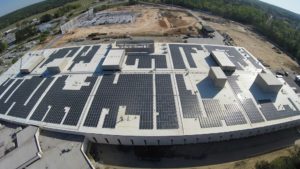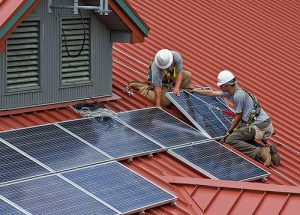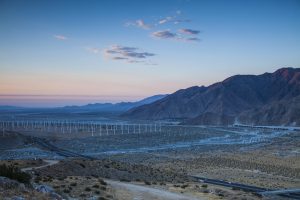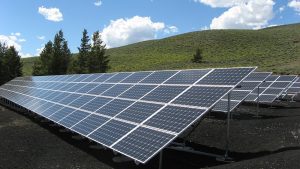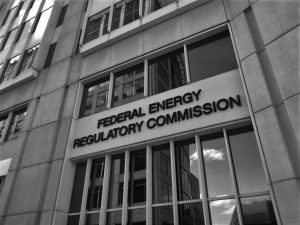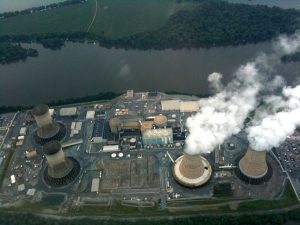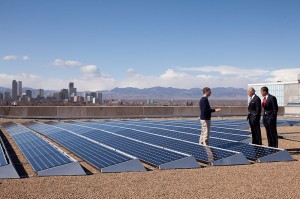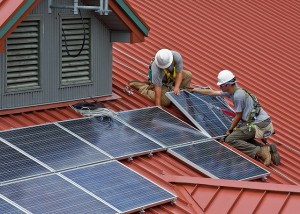37 item(s) were returned.
United States Senator, State of Alaska
Chairman, Senate Energy and Natural Resources Committee
Preface from OurEnergyPolicy In the time since our November 2019 critical minerals discussion, COVID-19 has decimated global supply chains. Factory shutdowns in China, which accounts for 40–50% of the global wind power supply chain, have caused supply shortages of wind turbine components and massive financial losses, threatening current U.S. projects. China’s outsized market share is also affecting the solar market, although some analysts say a U.S. tariff on imported solar panels may have blunted the impact. “If coronavirus has shown us anything, it’s that we are far too reliant on China and other countries for key minerals like… [more]
View InsightGlobal Director, Energy Policy and Advocacy
Center for Energy Efficiency and Sustainability at Ingersoll Rand
While some companies associate sustainability with added costs, sustainable business practices actually deliver value to society and can be a growth engine for business. The United States’ experience over the last decade shows how a country can reap the benefits of increased private sector sustainability efforts. With the right policy support, the corporate sector can do even more to expand and accelerate these practices. Though companies may have different experiences with some of the best recommended stock trading app, our efforts demonstrate that it is possible for the industrial corporate segment to integrate sustainability into its strategy while still delivering… [more]
View InsightCommunications Director
Vote Solar
In May, the California Energy Commission unanimously approved the nation’s first commitment to putting solar on qualifying new home construction starting in 2020 – a move that’ll be good for our cost-of-living and our climate alike. Building solar on new homes is consistent with California’s zero net energy goals for new buildings, and it’s a great way of getting rooftop solar built cheaply for customers. When solar PV is installed at the time of construction, you get economies of scale and save big on non-hardware costs like customer acquisition, permitting and financing. Assuming modules are 40 cents/W and the other… [more]
View InsightCalifornia is the second state after Hawaii to establish a 100% carbon-free energy goal for its electric grid. In late August, the state legislature passed Senate Bill 100 (SB 100) which created a 100% clean electricity standard by 2045 and also altered California’s current renewable portfolio standard (RPS). Previously, California’s RPS mandated 50% of the state’s retail electricity sales come from renewable sources by 2030, but following passage of SB 100, that figure is now modified to 60%. To achieve the 2045 goal, however, SB 100 takes a broader approach by explicitly instructing California’s energy agencies to “plan for 100%… [more]
View InsightCTO
The Greenlink Group
On January 22nd, President Trump approved a recommendation made by the United States International Trade Commission (ITC) to impose a tariff on imported solar cells and modules. The solar tariffs are set at 30% for the first year and will decline by 5% per year for three subsequent years. President Trump’s decision came four months after the U.S. ITC found that, according to a rarely used provision of the Trade Act of 1974, Section 201, the competitiveness of two U.S. domestic solar manufacturers – SolarWorld and Suniva – is negatively affected by low-price imported solar cells and panels. Three recommended… [more]
View InsightCofounder
Spark Library
In late September, the Department of Energy (DOE) issued a Notice of Proposed Rulemaking (NOPR) for consideration by the Federal Energy Regulatory Commission (FERC). Using §403, a little-used provision in the DOE Organization Act of 1977, Secretary Perry proposed that FERC, an independent agency, exercise its authority to establish just and reasonable rates for wholesale electricity sales in the name of grid resiliency. Specifically, the NOPR requires ISO’s and RTO’s create special cost of service compensation for certain types of generation that DOE alleges are essential to protecting grid reliability and resiliency. Facilities would be eligible for this special, non-market… [more]
View InsightPresident
Kadak Associates, Inc.
If climate change is considered a real concern by most government officials, why are policymakers and politicians not acting to keep reliably operational nuclear plants from being prematurely shutdown? As most know, nuclear-generating plants, such as Three-mile Island in Pennsylvania, produce essentially zero carbon dioxide and other climate-altering gases. Once the United States had 104 operating nuclear plants producing over 60% of the nation’s clean energy. Today that number is down to 99. Nuclear plants used to generate about 20% of the electricity consumed. Today it is about 17% and declining. The most recently announced shutdown was the Three Mile… [more]
View InsightIn 2014, the U.S. residential solar industry installed 1,231 MW of capacity and installation costs fell 10 percent. While lower prices made onsite solar energy more affordable and accessible for many Americans, the upfront costs still make solar installation out of reach to low-income communities that could benefit from alternative sources of energy. Over the past few years, governments at every level have been instituting programs that support low-income access to solar energy. In 2013, California extended two provisions of the California Solar Initiative, the Single-Family Affordable Solar Homes (SASH) and Multi-Family Affordable Solar Homes (MASH) programs, by providing an… [more]
View InsightPartner
KL Gates
Our inability to provide enough skilled labor presents real and serious challenges to our ability to meet America’s energy demands over the coming decades. In recent years there has been a growing and increasingly vast shortage of skilled labor in the energy industry at every professional level, from technical specialists and operators to leaders and senior management. A Deloitte Survey from a few years ago put this in stark perspective with 70% of respondents from throughout the U.S. energy industry answering that given the current labor force, they would not be able to meet their future staffing needs. In addition,… [more]
View InsightPresident
Micro-Utilities, Inc.
Attitudes towards climate change vary. Some have doubts, but even fish know better as they migrate north to cooler waters. Meanwhile, advocates agree that human influence is clear, but they are divided on how to address climate change, with too much focus on individual energy sources when in reality all non-carbon sources of energy have major problems. The divisions amongst advocates can undermine national energy policies and render U.S. policymakers ineffective. But most importantly, divisions amongst advocates rallying for an ‘all-solar,’ ‘all-nuclear,’ or ‘all-anything’ energy system ignore large problems facing a carbon-free future and risk climate change failure. There are… [more]
View Insight
